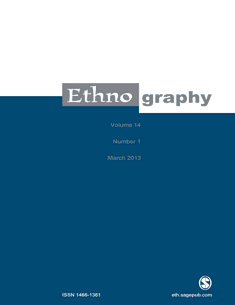
Ethnography
Scope & Guideline
Celebrating diverse voices in the arts and humanities.
Introduction
Aims and Scopes
- Qualitative Research Methodologies:
The journal focuses on employing qualitative methodologies, particularly ethnographic research, to gain insights into the lived experiences of individuals and communities across various settings. - Interdisciplinary Approaches:
Ethnography integrates perspectives from anthropology, sociology, cultural studies, and other disciplines, allowing for a rich, multifaceted understanding of social phenomena. - Reflexivity and Ethics in Fieldwork:
A core aim is to critically engage with the ethical implications and reflexive practices of ethnographic research, considering the researcher's positionality and the impact of their presence in the field. - Cultural and Social Dynamics:
The journal explores themes of identity, power, belonging, and cultural practices, with a focus on how these dynamics shape and are shaped by broader social structures. - Global and Local Contexts:
Research published in the journal often examines the interplay between global influences and local realities, providing insights into transnational phenomena and localized experiences.
Trending and Emerging
- Digital Ethnography:
There is a growing focus on digital ethnography, exploring how online interactions and digital environments shape cultural practices and social relationships, especially in light of the increasing digitalization of everyday life. - Intersectionality and Identity Politics:
Research is increasingly examining intersectional identities, including gender, race, class, and sexuality, and how these dimensions interact within various social contexts, reflecting a more nuanced understanding of identity. - Ethnographic Reflections on Global Crises:
The journal is publishing more studies that respond to global crises—such as pandemics, migration, and climate change—analyzing their impact on communities and the ethnographic practice itself. - Collaborative and Participatory Ethnography:
Emerging themes highlight collaborative and participatory approaches to ethnography, emphasizing co-creation of knowledge with research participants and ethical engagement in the research process. - Methodological Innovation:
There is a trend towards methodological innovation, with researchers experimenting with hybrid methodologies and interdisciplinary approaches that challenge traditional ethnographic paradigms.
Declining or Waning
- Traditional Ethnographic Settings:
There is a noticeable decrease in studies focused on traditional ethnographic settings, such as rural communities or isolated cultures, as researchers increasingly turn their attention to urban environments and digital spaces. - Static Fieldwork Narratives:
Papers that rely on static or linear narratives of fieldwork experiences are becoming less common, giving way to more dynamic, reflexive, and collaborative approaches that challenge conventional storytelling. - Single-Site Ethnographies:
The prevalence of single-site ethnographies is declining as researchers favor multi-sited or comparative studies that reflect the interconnectedness of contemporary social issues. - Descriptive Analysis without Critical Engagement:
There is a trend away from purely descriptive analyses that lack critical engagement with the implications of the research. The journal increasingly favors studies that interrogate the power dynamics and ethical considerations inherent in ethnographic work.
Similar Journals
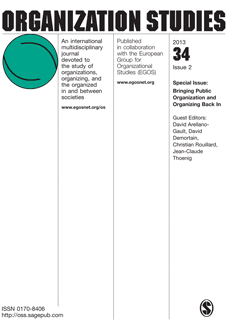
ORGANIZATION STUDIES
Fostering interdisciplinary dialogue for contemporary organizational challenges.ORGANIZATION STUDIES, published by SAGE PUBLICATIONS LTD, stands as a leading journal in the fields of Management of Technology and Innovation, Organizational Behavior and Human Resource Management, and Strategy and Management. With its ISSN 0170-8406 and E-ISSN 1741-3044, this esteemed journal has consistently achieved a Q1 ranking in its categories as of 2023, highlighting its critical influence in shaping contemporary organizational research and practice. The journal is recognized for its rigorous peer-reviewed articles that explore both theoretical advancements and practical applications, making it a vital resource for researchers, practitioners, and students eager to engage with the latest insights and innovations in organizational studies. Spanning over four decades of impactful contributions, ORGANIZATION STUDIES not only features high-quality research but also fosters interdisciplinary discourse tailored to address the evolving challenges faced by organizations in today's dynamic environments. Though it operates under a traditional publishing model, its extensive reach and robust academic standing affirm its position as a cornerstone in the field.
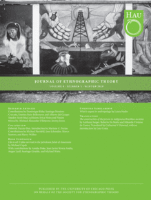
HAU-Journal of Ethnographic Theory
Pioneering New Perspectives in Ethnographic Methodologies.HAU-Journal of Ethnographic Theory, published by University of Chicago Press, stands as a leading platform for scholarly discourse in the field of anthropology. Established in 2011, this esteemed journal focuses on ethnographic methodologies and theoretical advancements, offering a significant contribution to the understanding of human cultures and social practices. With an impressive Q2 ranking in anthropology and a strong placement in the 63rd percentile among peers in the Scopus rankings, HAU ensures high visibility and impact within the academic community. Although the journal currently does not offer open access, it is widely available for institutions, fostering a global dialogue among researchers, professionals, and students. As it converges its content towards 2024, HAU remains dedicated to publishing innovative research that challenges existing paradigms and encourages critical reflection, solidifying its importance in the continuous evolution of ethnographic theory.

Revista de Etnografie si Folclor-Journal of Ethnography and Folklore
Exploring Cultural Narratives, Unveiling Ethnographic InsightsRevista de Etnografie si Folclor-Journal of Ethnography and Folklore, an esteemed publication by EDITURA ACAD ROMANE, serves as a vital platform for the dissemination of research and scholarship in the fields of anthropology and cultural studies. Established in Romania, this journal has committed itself to exploring the rich tapestry of ethnographic practices and folklore traditions, favoring interdisciplinary approaches that illuminate the diverse cultural heritage of societies. With an ISSN of 0034-8198, the journal has been instrumental in fostering academic dialogue and engaging researchers, professionals, and students alike. Though currently classified in the Q4 category of both anthropology and cultural studies, its continued growth from 2014 to 2024 signals an evolving contribution to understanding cultural dynamics. Accessible via traditional publication means, the journal encourages contributions that deepen the understanding of ethnographic methodologies and cultural narratives, thereby enriching the academic landscape.
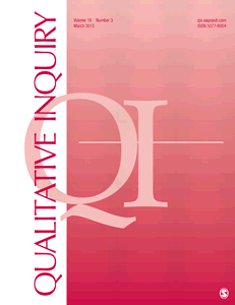
QUALITATIVE INQUIRY
Exploring the Depths of Social UnderstandingQUALITATIVE INQUIRY is a leading academic journal published by SAGE Publications Inc, dedicated to advancing the field of qualitative research within the domains of Anthropology and Social Sciences. With an impressive Q1 ranking in both categories for 2023, the journal holds a prominent position in the academic community, recognized for its high-quality contributions and influential research. The journal, available in print with the ISSN 1077-8004 and electronically with the E-ISSN 1552-7565, showcases innovative methodologies and critical analyses that deepen our understanding of social phenomena. Researchers, professionals, and students will find a wealth of knowledge as the journal publishes insightful studies that push the boundaries of qualitative inquiry. Situated in the vibrant academic landscape of the United States and operating from its headquarters in Thousand Oaks, CA, QUALITATIVE INQUIRY plays a crucial role in shaping discussions and fostering new perspectives in the social sciences, underscoring its importance in the scholarly community.
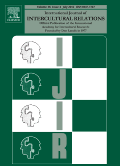
International Journal of Intercultural Relations
Connecting Cultures Through Cutting-Edge ResearchWelcome to the International Journal of Intercultural Relations, a premier publication dedicated to advancing the field of intercultural studies. Published by Pergamon-Elsevier Science Ltd in the United Kingdom, this journal has established itself as a vital resource for researchers and practitioners focusing on the complexities of cultural interactions across the globe. With an impressive impact factor reflecting its significance—ranked in Q1 for Business and International Management and Sociology and Political Science, and Q2 for Social Psychology—this journal strives to deliver cutting-edge research that informs and influences policy and practice in a multicultural world. Since its inception in 1977, the journal has provided a platform for interdisciplinary discourse and empirical studies, ensuring that the voices of diverse cultures are heard and understood. Researchers, professionals, and students engaged in intercultural relations will find valuable insights and methodologies that tackle contemporary challenges in this vital area of study. Join us as we explore the nuances of human interaction within a globalized society.
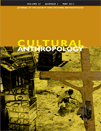
CULTURAL ANTHROPOLOGY
Unveiling the Nuances of Cultural NarrativesCULTURAL ANTHROPOLOGY is a premier journal in the field of anthropology, published by the esteemed SOC CULTURAL ANTHROPOLOGY. With an impressive impact factor and ranking in the Q1 category for both anthropology and arts and humanities, it stands as a leading platform for scholarly discourse and innovative research. Since transitioning to Open Access in 2014, the journal has made substantial contributions to the accessibility of anthropology literature, allowing a broader audience to engage with cutting-edge anthropological insights and findings. The journal's scope encompasses a wide range of cultural studies and anthropological perspectives, catering to a diverse readership that includes researchers, professionals, and students. Published from the Department of Anthropology, Rice University in Houston, Texas, CULTURAL ANTHROPOLOGY continues to shape the conversation in its field, promoting interdisciplinary dialogue and enriching the academic landscape.
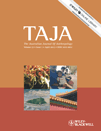
Australian Journal of Anthropology
Cultivating Critical Analysis in Cultural StudiesThe Australian Journal of Anthropology, published by Wiley, stands as a pivotal resource in the field of anthropology, reflecting a deep commitment to advancing scholarly discourse since its inception in 1990. With an ISSN of 1035-8811 and E-ISSN 1757-6547, this journal provides a platform for innovative research and critical analysis, contributing to the global anthropology community. Based in the United States, at 111 River St, Hoboken, NJ, it has established itself in the Q3 category of anthropology journals, ranking #162 out of 502 in Scopus, placing it in the 67th percentile among its peers. While it is not currently an open-access publication, the journal remains dedicated to accessibility through institutional subscriptions and provides a wealth of insight into anthropological methods and cultural studies. It seeks to foster interdisciplinary dialogue and promote a comprehensive understanding of social dynamics, making it an essential read for researchers, professionals, and students eager to enrich their knowledge and engage with contemporary anthropological issues.
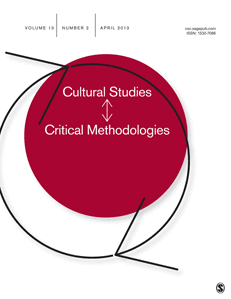
Cultural Studies-Critical Methodologies
Elevating voices in the dynamic field of cultural studies.Cultural Studies-Critical Methodologies is a leading journal in the field of cultural studies, published by SAGE Publications Inc. With the ISSN 1532-7086 and E-ISSN 1552-356X, this esteemed journal has been vital in advancing research methodologies and theoretical frameworks within the dynamic arena of cultural studies since its inception in 2001. Notable for its exceptional impact factor, it holds a Q2 quartile ranking in Arts and Humanities (miscellaneous) and a prestigious Q1 ranking in Cultural Studies as of 2023, further establishing its relevance and authority. The journal is recognized for its scholarly contributions, currently ranked #235 out of 1304 in the Scopus database for social sciences, signifying an impressive 81st percentile ranking, as well as a strong standing in the arts and humanities category. Although it does not offer Open Access options, it remains widely accessible through academic institutions and libraries. Cultural Studies-Critical Methodologies seeks to foster innovative research and critical discourse, making it an indispensable resource for researchers, professionals, and students who are engaged in the examination of culture, identity, and social movements in a rapidly evolving world.

Anthropology in Action-Journal for Applied Anthropology in Policy and Practice
Shaping Tomorrow’s Policies with Today’s AnthropologyAnthropology in Action - Journal for Applied Anthropology in Policy and Practice, published by BERGHAHN JOURNALS, stands as a pivotal resource within the field of applied anthropology, addressing vital issues at the intersection of cultural insights and policy development. With an impressive Q1 ranking in Anthropology and a noteworthy position in the Scopus Ranks (Rank #70 of 502), this journal has solidified its influence as a premier platform for scholars and practitioners seeking to engage with contemporary societal challenges through a rigorous anthropological lens. Since becoming Open Access in 2018, the journal has enhanced accessibility to its rich array of scholarly articles, making critical research findings available to a broader audience. Covering a spectrum of topics from community practice to inform policy-making, Anthropology in Action aims to foster cross-disciplinary dialogue and promote the practical application of anthropological insights for real-world change. Whether you are a researcher, policymaker, or student, this journal serves as an essential navigational tool in the evolving landscape of applied anthropology.

Revista Critica de Ciencias Sociais
Championing quality research for a better understanding of society.Revista Critica de Ciencias Sociais is a distinguished journal published by the CENTRO ESTUDOS SOCIAIS, FAC ECONOMIA, dedicated to advancing the field of social sciences. Established in 2001 and embracing Open Access since 2002, this journal aims to provide an inclusive platform for scholarly research in various areas of psychology and social sciences. With a notable commitment to quality and accessibility, it currently holds a Q4 category ranking in both psychology and general social sciences as of 2023. Despite its emerging status, with rankings reflecting its growth in the competitive landscape, this journal aspires to elevate discussions and disseminate knowledge pertinent to contemporary societal issues. Based in Coimbra, Portugal, the journal serves as an invaluable resource for researchers, professionals, and students alike, fostering a global dialogue that enriches the multifaceted field of social studies.